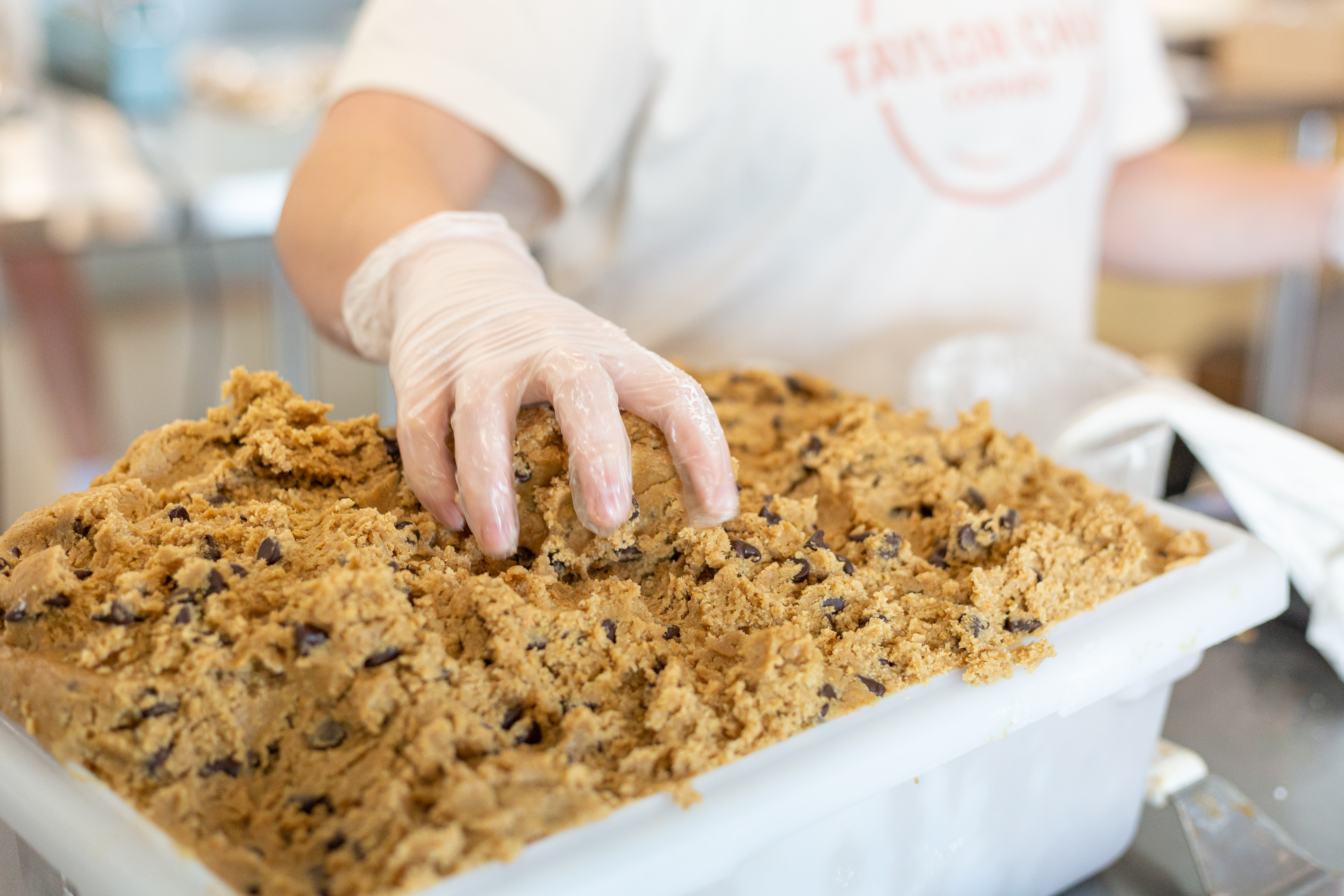Feeding cookies to squirrels isn't recommended due to the high sugar content and artificial additives found in cookies, which can lead to serious health issues for these animals. Squirrels thrive on a diet of nuts, seeds, fruits, and vegetables that provide essential nutrients like proteins, fats, vitamins, and antioxidants. Cookies can cause obesity, dental problems, and digestive issues, disrupting the dietary balance necessary for their well-being. Instead, offering safe alternatives such as walnuts, apples, and leafy greens supports their health and natural foraging behaviors. Exploring appropriate feeding practices can greatly benefit squirrel health and longevity.
Key Takeaways
- Cookies contain unhealthy ingredients like high sugar and artificial additives unsuitable for squirrels.
- Feeding squirrels cookies can lead to obesity, diabetes, and heart problems.
- Cookies cause dental issues and digestive problems in squirrels.
- Processed foods disrupt a squirrel's natural dietary balance, leading to long-term health issues.
- Healthy alternatives include nuts, fresh fruits, and vegetables that mimic a squirrel's natural diet.
Squirrel Diet and Nutrition
When you think about a squirrel's diet, it's important to know that they mainly eat nuts, seeds, fruits, and vegetables found in their natural habitat. These foods provide essential nutrients like proteins, fats, and vitamins that squirrels need to maintain their energy levels and overall health. Understanding these natural food sources helps you appreciate why cookies, while tempting treats for humans, don't fit into a healthy squirrel's diet.
Natural Food Sources for Squirrels
Throughout the changing seasons, squirrels rely on a variety of natural food sources to meet their nutritional needs. In their natural habitat, wild squirrels have a diverse diet that guarantees they receive a balanced diet year-round. Tree buds are among the first foods they consume in early spring, providing essential nutrients after a long winter. As the seasons progress, nuts and seeds become more abundant and form a noteworthy part of the squirrel diet. Acorns, walnuts, and pine nuts are some of their favorites due to their high-fat content, which is vital for energy storage.
Fresh fruits also play an essential role in a squirrel's diet, especially during the summer and fall when they are plentiful. Berries, apples, and other fruits offer necessary vitamins and hydration, contributing to their overall health benefits. By consuming a variety of these natural foods, squirrels can maintain a proper food intake that supports their active lifestyle and survival. Guaranteeing a balanced diet with tree buds, nuts, seeds, and fresh fruits allows squirrels to thrive in their natural environment, demonstrating the importance of their natural food sources for long-term health and well-being.
Essential Nutrients Squirrels Need
Squirrels' reliance on a varied diet of tree buds, nuts, seeds, and fresh fruits guarantees they get a wide range of nutrients. This diverse intake guarantees they receive essential nutrients needed to stay healthy. Nuts, for instance, are a significant source of nutrition, providing proteins and fats necessary for energy and growth. Seeds and tree buds offer vitamins and minerals, while fresh fruits supply antioxidants and fiber, all contributing to their overall nutritional benefit.
A squirrel's diet mainly consists of plant-based material, which supports their natural foraging behavior and nutritional requirements. However, including additional foods such as fungi and insects can offer further benefits, rounding out their diet with extra protein and other nutrients. This balanced approach prevents weight gain and reduces the risk of severe health issues, such as malnutrition or metabolic disorders.
Maintaining a varied diet is important for squirrels to thrive in their natural habitat. By guaranteeing they have access to a wide range of food sources, you help them meet their dietary needs and live healthy lives. Remember, providing the right balance of nutrients is essential to preventing potential health problems.

Choose Your Own Delightfully Perfect Cookies.
With almost 30 flavors to choose from, you can make your box as unique as you are.
Cookies and Squirrels
When considering cookies and squirrels, you should first understand the common ingredients in cookies, such as sugar, chocolate, and artificial additives. These components pose important risks to squirrels, potentially leading to severe health issues like obesity, dental problems, and even poisoning. To guarantee the well-being of these small animals, it's essential to avoid feeding them cookies and stick to their natural diet.
Common Cookie Ingredients
In the area of baking, common cookie ingredients like flour, sugar, and butter are vital, but did you know that some of these ingredients can be surprisingly appealing to squirrels as well? Squirrels, like many animals, are attracted to food with a high sugar content. Cookies, which often contain sugar and sometimes artificial sweeteners, can draw their attention. However, not all ingredients found in cookies are healthy for squirrels. For instance, peanut butter, often used in cookie recipes, can be a tempting treat for squirrels due to its high protein content and nutty flavor.
On the other hand, dark chocolate, another common cookie ingredient, is not suitable for squirrels. It contains theobromine, which can be harmful. Nuts, frequently found in various cookie recipes, are generally safe and can be a natural part of a squirrel's diet. However, it's important to be aware of ingredients that could lead to poisoning. To prevent squirrels from accessing your cookies, consider using weight-activated shut-off mechanisms on feeders. While some cookie ingredients might be appealing to squirrels, it's important to guarantee their diet remains healthy and balanced.
Potential Risks to Squirrels
Despite their love for sweet treats, cookies pose several potential risks to squirrels. Regularly feeding squirrels cookies can lead to poor health due to high sugar content and artificial ingredients, which their bodies aren't equipped to handle. Squirrels thrive on a diet that includes nuts, seeds, fruits, and vegetables, all of which help keep their teeth healthy and provide necessary nutrients.
One of the main potential risks is the impact on their teeth. The sugar in cookies can cause decay and dental problems, making it difficult for squirrels to eat their natural foods. Moreover, the artificial ingredients and preservatives found in many cookies can lead to severe issues in their digestive systems, which are not suited to process such substances.
Feeding squirrels from regular bird feeders with appropriate foods like unsalted peanut butter, seeds, and nuts is a much safer alternative. Even small amounts of cookies can disrupt their dietary balance and lead to long-term health problems. It's crucial to avoid giving them any human junk food to guarantee they remain healthy and happy. By understanding these risks, you can help protect these charming creatures and contribute to their well-being.
Safe Alternatives to Cookies
When considering safe alternatives to cookies for squirrels, you should focus on healthy snacks that mimic their natural diet. Offering nuts, seeds, and fresh fruits can provide essential nutrients without the harmful additives found in processed foods. These natural options not only support their overall health but also enhance their energy levels and immune system.
Healthy Snacks for Squirrels
Feeding squirrels can be a delightful experience, but offering them cookies isn't the best choice for their health. Instead, consider providing them with healthy snacks. A variety of natural foods is fundamental for both grey squirrels and tree squirrels.
Here are a few excellent options to keep them happy and healthy:
- Healthy fruits: Squirrels love fruits like apples, bananas, and berries. These foods are rich in important vitamins and minerals.
- Nuts: Walnuts, almonds, and hazelnuts are excellent choices. They provide important fats and proteins that are essential for a squirrel's diet.
- Vegetables: Sugar snap peas, carrots, and leafy greens can be a tasty and nutritious treat.
If you have a pet squirrel, it's imperative to make certain their diet mimics what they'd find in the wild. Natural foods like walnuts and sunflower seeds offer the nutrients they need without the harmful additives found in processed snacks. Providing a variety of these healthy options will help maintain your squirrel's energy levels and overall well-being.
Benefits of Natural Foods
Switching squirrels to natural foods instead of cookies can do wonders for their health. When you offer squirrel food that's part of their natural diet, you mimic what ground squirrels and tree-dwelling squirrels would find in the wild. Natural foods like pine nuts, tree flowers, and fungi are excellent choices. These items are rich in nutrients and help maintain a balanced diet, supporting the overall health of wild animals.
Ground squirrels and tree squirrels have a natural fear of unfamiliar foods, and cookies can disrupt their digestion. By providing raw peanuts, you offer a familiar food source that's both safe and nutritious. Pine nuts are another great option, high in essential fats and proteins that squirrels need to thrive. Tree flowers and fungi add variety to their diet, ensuring they get a range of nutrients.
Selecting natural foods for squirrels helps prevent health issues related to processed foods. Cookies, high in sugar and artificial ingredients, can lead to obesity and other health problems. By sticking to natural squirrel food, you contribute to the well-being of these charming creatures, allowing them to stay healthy and active in their natural habitat.
Frequently Asked Questions
How Often Do Squirrels Eat Throughout the Day?
Squirrels typically eat several times a day. You'll often see them foraging and nibbling on nuts, seeds, and fruits. They're quite active and need to refuel frequently to maintain their energy throughout their busy day.
What Are Common Health Issues in Pet Squirrels?
Your pet squirrel might face common health issues like dental problems, obesity, and metabolic bone disease. You should guarantee they have a balanced diet, plenty of exercise, and regular vet check-ups to keep them healthy.
How Can I Tell if a Squirrel Is Sick?
You can tell if a squirrel is sick by observing changes in behavior, like lethargy, loss of appetite, or difficulty moving. Check for visible signs like discharge from eyes or nose, and unusual lumps or bumps.
Do Squirrels Need a Varied Diet in Captivity?
Yes, squirrels need a varied diet in captivity. You should provide a mix of fruits, vegetables, nuts, and seeds. This guarantees they get all the necessary nutrients and helps keep them healthy and active.
Can Baby Squirrels Eat the Same Food as Adult Squirrels?
You should know baby squirrels can't eat the same food as adults. They need special milk or formula until they're older. Once they're weaned, you can introduce solid foods, but always consult a vet first.
Conclusion
In summary, while squirrels can technically eat cookies, it's not advisable due to the potential health risks associated with common cookie ingredients like sugar, chocolate, and artificial additives. These can lead to nutritional imbalances and health issues in squirrels. Instead, you should offer them natural foods that align with their dietary needs, such as nuts, fruits, and seeds, which provide essential nutrients and support overall well-being. Prioritizing natural foods guarantees squirrels stay healthy and thrive in their natural habitats.









